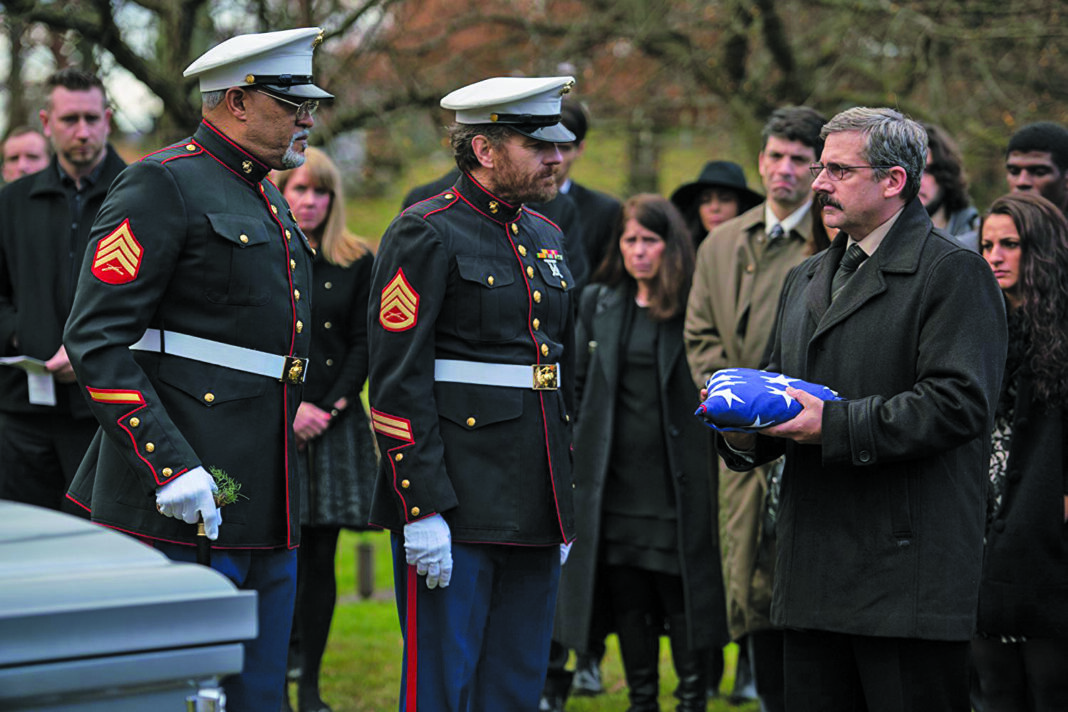Last Flag Flying is the unauthorized sort-of sequel to cinema’s first great f-bomb: Richard Linklater’s serial-numbers-filed-off follow-up to 1973’s The Last Detail takes the renamed, rejiggered characters up to the early Gulf War, in the winter of 2003. Robert Towne/Hal Ashby’s adaptation of the Darryl Ponicsan novel had two swabbies (Jack Nicholson and Otis Young) escorting a naval prisoner to the stockade in Portsmouth, New Hampshire. Their prisoner is a backward kid (Randy Quaid) who impulsively stole some loose money from a charity dish. He got 12 years for a stolen $40. The two sailors felt for the kid and decided to turn the journey into a moveable feast.
Nicholson’s Billy “Badass” Buddusky’s character is here called Sal Nealon, an old Marine. He’s out of the service with a steel plate in his head, a sodden, amiable owner/operator of a bar and grill where the grill doesn’t work. He gets an unexpected visit from his old service buddy ‘Doc,’ the ex-prisoner (Steve Carell). The man needs some help: His only son, killed in Iraq, is going to be buried in Arlington, and he wants a friend by his side.
Their fellow hellion from the ’Nam days, Reverend Richard Mueller (Laurence Fishburne), is now standing in a Baptist church pulpit. He’s opposed to joining the two friends, but the pastor is shamed into the journey by his wife. The three are escorted by Washington (J. Quinton Johnson), an Iraq vet; they have a change of plans and decide to take the deceased son north to the cemetery at Doc’s small town.
Linklater honors an experience that cannot be understood by the civilian, and he hasn’t gone around and around the contradiction of an anti-war movie that’s proud of the troops, like a man trying to find a corner in a round room. Last Flag Flying sums up the fragility, the fun and the absolute mess that all who are born male end up in together.









